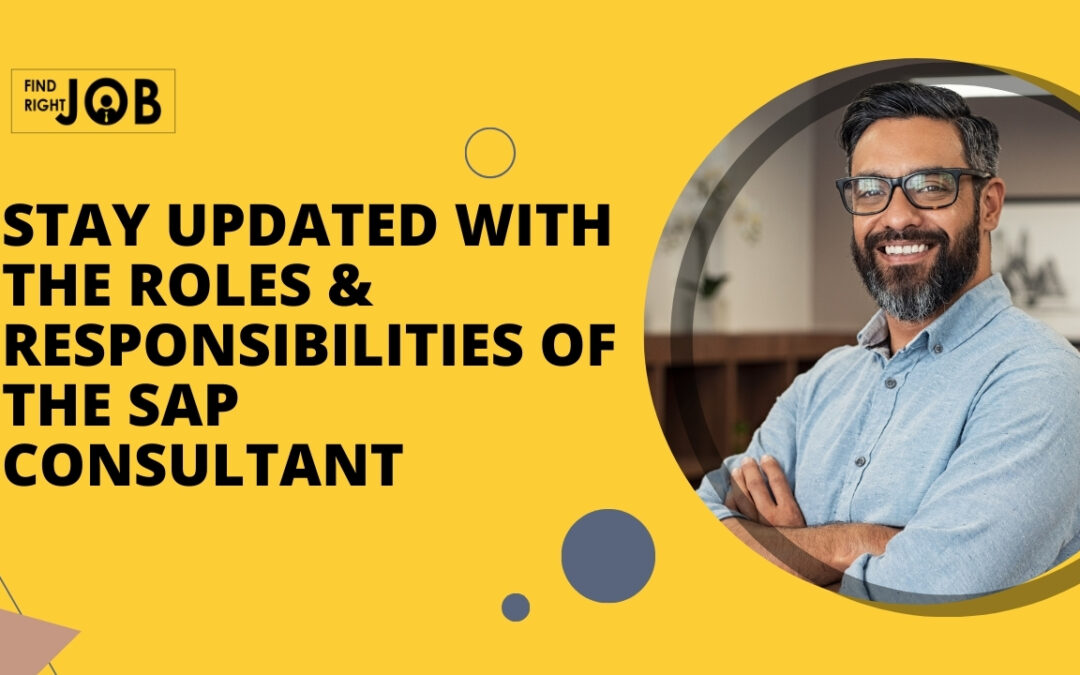SAP happens to be one of the best enterprise resource planning (ERP) systems among the available solutions in the market today. Various businesses implement SAP for different activities as managing all financial aspects, supply chain, personnel, and even clients. Therefore, a spurt in the demand for skilled SAP consultants has been witnessed. Here we will provide you a complete guidance about SAP consultants. It will help you a lot in your journey.
Who is an SAP Consultant?
A specialist who assists companies in the installation, administration, and improvement of their SAP software solutions is known as an SAP consultant.
They are important because they make sure that a company’s SAP system is functional. These consultants tend to focus on more than one or more modules of the SAP system. These include:
- SAP Functional Consultant: Deals with areas such as finance (FI), human resources (HR), or sales and distribution (SD).
- SAP Technical Consultant: Responsible for the system architecture or ABAP programming and integration technicality.
- SAP Basis Consultant: Focuses on performance optimization, system administration, and database management.
- SAP Business Consultant: Works on integrating the SAP solutions with the business purpose and provides information for business decisions.
They work hand in hand with the stakeholders, perform requirement evaluation, SW SAP systems configuration, SAP systems technical maintenance, and provide further help.
Responsibilities of an SAP Consultant
The Consultant’s job description is highly dependent on their area of specialization but in general, they undertake the following responsibilities:
- Evaluating the needs of the business and providing solutions in the form of information technology systems.
- Deploying SAP amendments and procedures in accordance with the business process requirements.
- Debugging, troubleshooting, and optimizing the performance of the SAP systems.
- Instructing non-technical users on effective SAP software use.
- Carrying out support and maintenance activities on the SAP systems.
Working with different functional divisions to enhance each SAP implementation with other business applications.
How to Become a Consultant
To become a consultant, a number of activities including education practical work, and experience have to be done. Below are the steps that one could follow.
1. Educational background
While there’s no single degree that you will absolutely need in order to become a consultant. It is often helpful to be well-versed in degrees in computer science, information technology, business administration, and perhaps even finance. An understanding of business processes and technical concepts is vital for this role.
2. SAP Certification
To proceed further in your career, it is necessary to obtain the SAP certification. This includes a multitude of certification programs differing according to the various SAP systems such as SAP Financial Accounting, SAP HANA, and many more. All of these architectural practice shifts strengthen your credibility through obtaining certifications.
3. Gain Practical Experience
For prospective consultants, practical experience is one of the most essential elements. Possible ways to gain such skills should include the following:
- Internships and junior roles in organizations with SAP systems.
- Participation in an SAP implementation project to grasp the application aspects of the solutions.
- Substitution for small businesses to gain practical experience.
4. Develop Soft Skills
The entire competencies and stages of being successful on the SAP consultant career path are the technical ones. However, these professionals also need to have well-developed soft skills as follows:
- Communication skills: In order not to get lost in interaction with clients or other team members.
- Problem-solving abilities: In order to understand system malfunctions and easily deal with them.
- Project management skills: The ability to multitask and meet deadlines.
- Analytical thinking: In order to analyze data correctly, and to act on it.
5. Keep Up With SAP Trends
With regard to the SAP world, continuously changes with the number of updates and the addition of new modules. As an SAP professional, there are certain trends, webinars, and professional communities that you should be part of – learning new things would help you stay at the top.
Consultant Salary
The high earning potential is the advantage of working as an SAP consultant. Industry statistics show a wide disparity in what Consultants are paid, depending on the level of experience, geographic area, and area of focus. This is a general outline:
- The annual package of junior consultants is usually in the range of $60,000 to $80,000 in most cases.
- The annual package of junior consultants is usually in the range of $60,000 to $80,000 in most cases.
- The annual package of mid-level consultants with experience of a couple of years, their salaries generally may be in the range of $80,000 to $120,000.
- The annual package of senior consultants professionals holds a lot of experience and advanced certification. Their salary for a year can be above $150,000.
- Besides good pay direct, a good number of consultants also enjoy a number of advantages such as favorable conditions to work. Traveling opportunities as well as professional growth programs.
- Besides good pay direct, a good number of consultants also enjoy a number of advantages such as favorable conditions to work. Traveling opportunities as well as professional growth programs.
Conclusion
If you are interested in business processes and technology, becoming an SAP Consultant is worth it. The right education, certifications, and practical experience mean you can become a precious commodity in the job market. For those who wish to take this adventure, first, learn how to get certified and work towards becoming an expert in an endlessly evolving environment of SAP.

